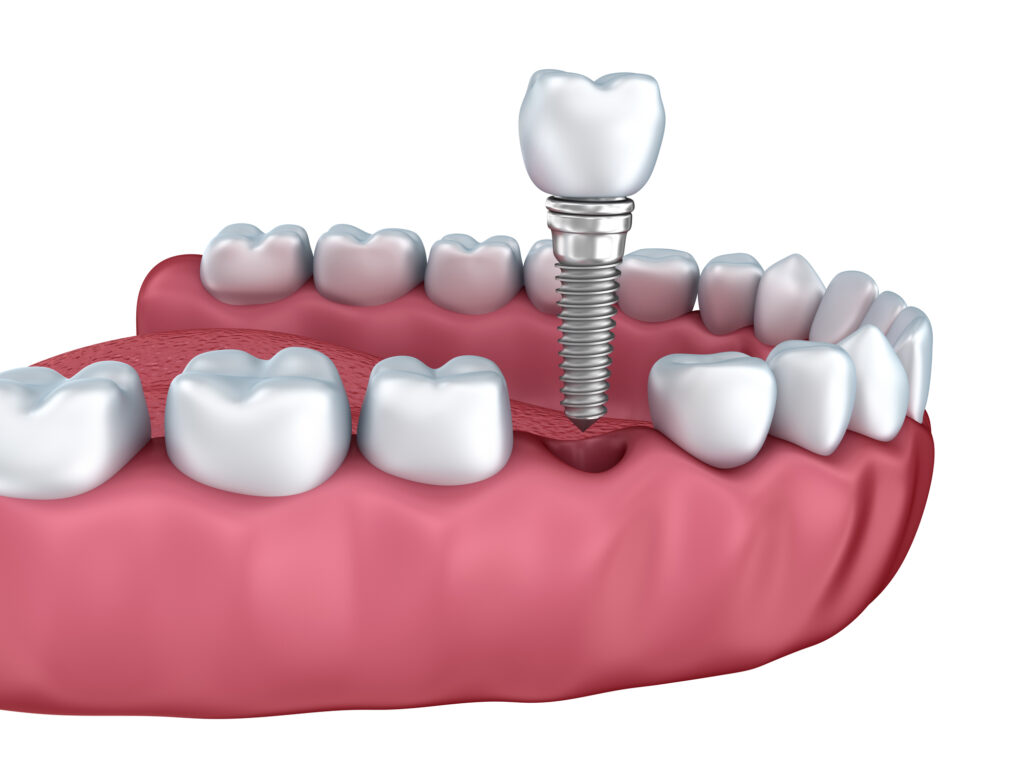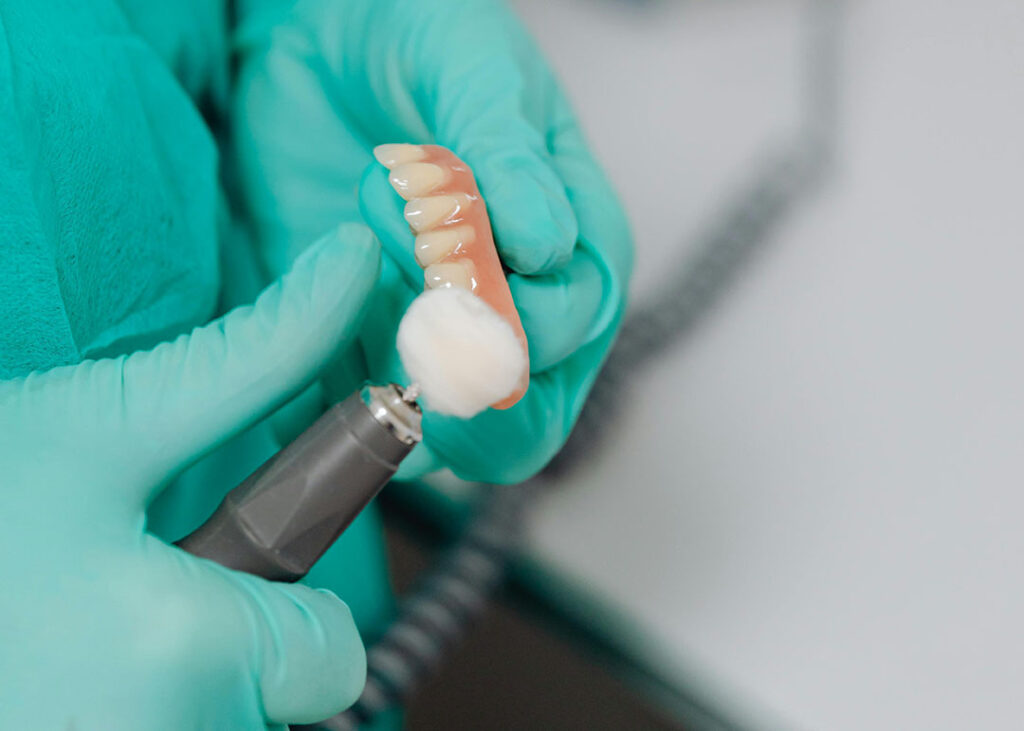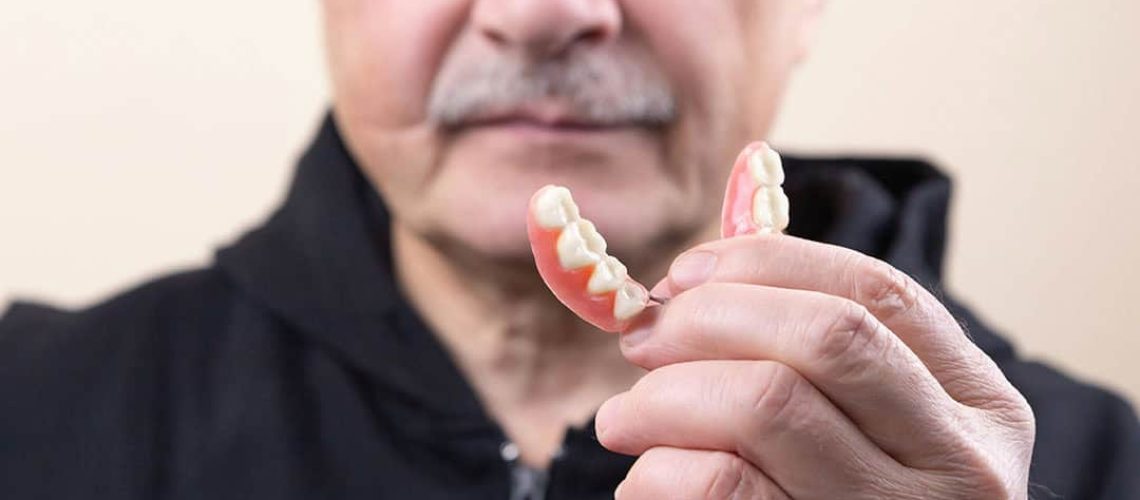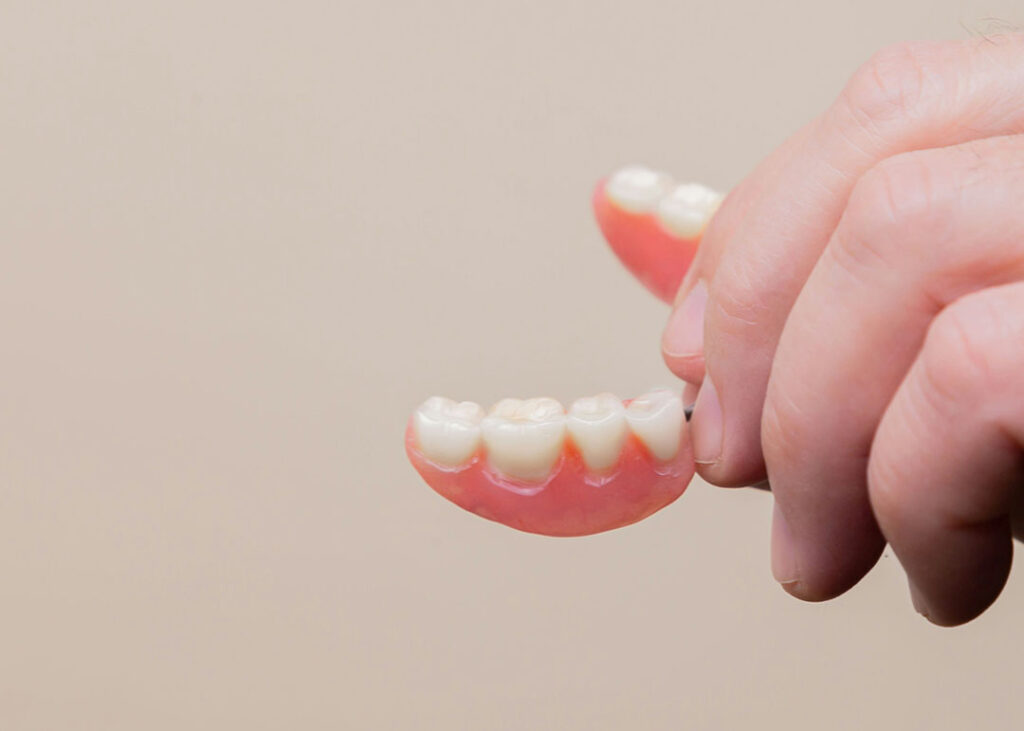If you wear dentures, you know the confidence they can give you by restoring your smile and allowing you to enjoy the foods you love. But over time, many denture wearers experience their dentures becoming loose, causing discomfort and even frustration. Fortunately, there are several effective solutions to help improve the fit and feel of your dentures. In this article, we’ll explore what causes loose dentures, signs that it’s time to adjust, and how you can find a solution that best suits your needs. Loose dentures are a common issue, especially as our bodies and bones change over time. But what exactly causes dentures to feel loose?
What Causes Loose Dentures?
Natural Changes in Your Jaw and Bone Structure: After losing your natural teeth, also known as missing teeth, the bone in your jaw can begin to shrink, a process called bone resorption. Since your dentures rest on your gums and jawbone, changes in this structure can cause dentures to become loose.
Wear and Tear Over Time: Dentures are durable but not indestructible. Daily use can cause minor breakage or wear down certain areas, which can result in a less secure fit.
Incorrect Initial Fit: If your dentures weren’t a perfect fit from the start, they may have felt uncomfortable or loose right away. Over time, these minor fit issues can worsen, making it harder for you to enjoy the stability you need.
Gum Changes Post-Extraction: After tooth extraction, the gums swell and eventually settle. This natural healing process can leave space between your gums and dentures, contributing to a loose fit.
Bone Resorption: As mentioned, the gums and jawbone can shrink over time, especially if you’ve worn dentures for years. Bone resorption is a slow process, but it can lead to your dentures feeling increasingly loose over the years.
How to Tell if Your Dentures Are Loose
If you’re noticing discomfort, it might be time for a closer look at your dentures. Here are some clear signs that your loose dentures fit may need adjustment:
Discomfort or Pain: If your dentures are causing soreness or pain, they may not be fitting as they should.
Slippage When Speaking or Laughing: Look in the mirror when you talk or laugh—if your dentures move or shift out of place, they’re likely too loose.
Difficulty Chewing: Struggling to chew or biting down on certain foods may mean your dentures need an adjustment to provide proper stability.
Sore or Irritated Gums: Loose dentures can rub against your gums, creating sore spots or even causing infections if left untreated.
Impact of Loose Dentures on Natural Teeth
You may not realize it, but loose dentures, including partial dentures, can have an impact on any remaining natural teeth as well. Here’s how:
- Pressure on Surrounding Teeth: Loose dentures can exert pressure on adjacent natural teeth, which may cause them to loosen over time.
- Misalignment: Ill-fitting dentures can shift your remaining teeth out of alignment, potentially leading to discomfort and other dental issues.
Difficulty Eating and Speaking: The constant movement from loose dentures can make eating and speaking challenging, impacting your day-to-day quality of life and the overall health of your remaining teeth.
Solutions for Loose Dentures
The good news is there are several options available to help improve the fit of loose dentures. False teeth, commonly known as dentures, serve as replacements for missing teeth but can sometimes become loose and require proper care. Here’s a breakdown of your options, from temporary fixes to long-term solutions.
1. Denture Adhesive: A Quick Fix
Denture adhesives can be a convenient and affordable way to keep your dentures stable. Available in creams, pastes, powders, and cushions, denture adhesives provide a temporary fix for loose dentures by adding an extra layer of security.
Comfortable Hold: Denture adhesives help secure your dentures and reduce movement, which can relieve pressure and discomfort.
Added Confidence: Denture adhesives can provide a greater sense of stability, making you feel more comfortable talking, laughing, and enjoying meals.
It’s important to note that denture adhesives are a temporary solution and may not work well if your dentures are extremely loose due to significant bone loss or other major fit issues.
2. Relining or Rebasing Dentures
For a more permanent fix, consider having your dentures relined or rebased by a professional. Relining reshapes the base of your dentures to better match the contours of your mouth, improving the fit. Rebasing involves replacing the entire base of the dentures, which can be a good option if the material itself has worn down.
Soft Reline: This method uses a soft, pliable material that adapts to your gums. Soft relining is ideal if you experience soreness or have sensitive gums, as it provides a more comfortable, cushiony fit.
Hard Reline: A hard reline uses hard denture plastic for a stronger, longer-lasting hold. This process involves sending newly molded dentures to a lab for permanent reshaping. Although it may feel stiffer and is more expensive and time-consuming, it provides added stability and durability.
Relining or rebasing can significantly improve the fit of your dentures and is a great option for those who experience regular looseness or soreness.
3. Dental Implants: A Long-Term Solution
If you’re looking for a permanent, stable solution to loose dentures, dental implants may be the answer. Implants involve placing titanium posts into your jaw, which act as anchors for your permanent dentures. This procedure provides a level of stability unmatched by adhesives or relining.

- Reduces Need for Adjustments: Since the implants anchor your permanent dentures, they prevent movement, reducing the need for frequent adjustments.
Long-Term Stability: Unlike other options, implants offer permanent stability, making them a top choice if you’re ready for a long-term fix.
While dental implants are an investment and involve a more extensive procedure, they provide unmatched stability and comfort for denture wearers.
4. Overdentures
Overdentures are a type of denture designed to fit over existing natural teeth or dental implants. These dentures offer additional support and stability, making them an excellent option for individuals who still have some remaining natural teeth. By fitting over these teeth or implants, overdentures can significantly improve the fit and function of your dentures, making it easier to eat, speak, and smile with confidence.
Enhanced Stability: Overdentures provide a more secure fit by utilizing the support of natural teeth or implants, reducing movement and slippage.
Improved Comfort: The added stability can make wearing dentures more comfortable, reducing sore spots and irritation.
Preservation of Jawbone: By maintaining some natural teeth or using implants, overdentures can help preserve the jawbone, preventing further bone resorption.
Overdentures are a versatile and effective solution for those looking to improve the fit and function of their dentures while maintaining some natural teeth or utilizing dental implants.
At-home Adjustments
Making at-home adjustments to your dentures can be a convenient and cost-effective way to improve the fit of your dentures. However, it’s essential to exercise caution when making adjustments at home, as improper adjustments can lead to further discomfort and damage to your dentures. Here are some tips for making at-home adjustments:
Use a Soft-Bristled Toothbrush and Mild Soap: Clean your dentures gently to remove food particles and bacteria without causing damage.
Avoid Harsh Chemicals or Abrasive Materials: These can damage your dentures and affect their fit.
Use a Denture Adhesive: This can help secure your dentures in place, providing temporary stability.
Avoid Biting or Chewing on Hard Objects: This can cause damage to your dentures and affect their fit.
It’s essential to note that while at-home adjustments can be helpful, they may not always provide a secure fit. If you experience persistent discomfort or difficulty with your dentures, it’s best to consult with a dental professional for a proper adjustment.
Regular Cleaning and Care
Just like natural teeth, partial or complete dentures require regular maintenance and care to stay in good shape and maintain a comfortable fit. Good hygiene is essential to keeping your dentures in great shape. Regular cleaning can help prevent stains, odors, and oral health issues.

- Daily Brushing: Brush your dentures gently with a soft-bristled brush twice a day to remove food particles and bacteria.
Soak Overnight: Soaking your dentures in water or a denture cleaning solution overnight helps them retain moisture and keeps them fresh.
Professional Help
When in doubt, the best way to ensure your dentures fit correctly is to visit your dental professional. They can assess the fit and condition of your dentures and recommend adjustments or solutions that suit your needs. Regular visits allow your dentist to monitor your oral health and ensure your dentures are always comfortable and secure.
Loose dentures don’t have to interfere with your daily life. With a better understanding of the causes, symptoms, and solutions for loose dentures, you can take proactive steps to ensure your dentures fit well and stay comfortable. Whether it’s a quick fix with adhesive, a more secure reline, or a long-term solution with dental implants at Oral Facial Surgical Arts, there are plenty of ways to regain confidence and comfort with your smile.



